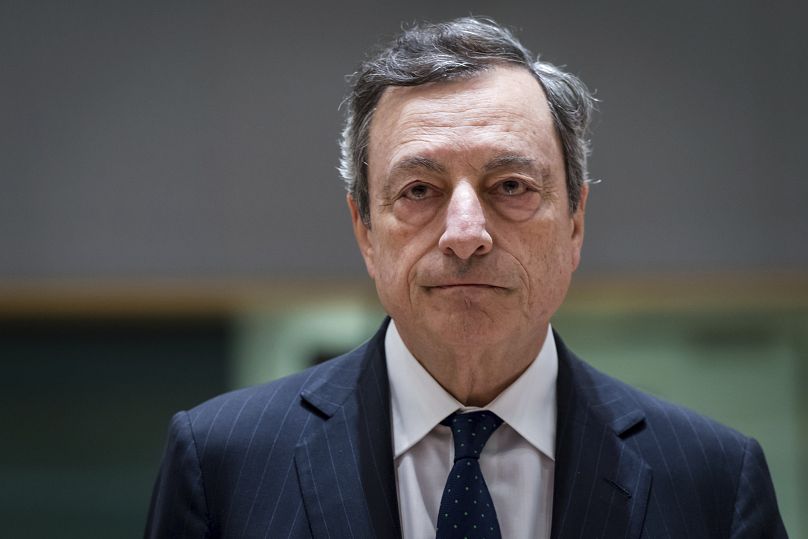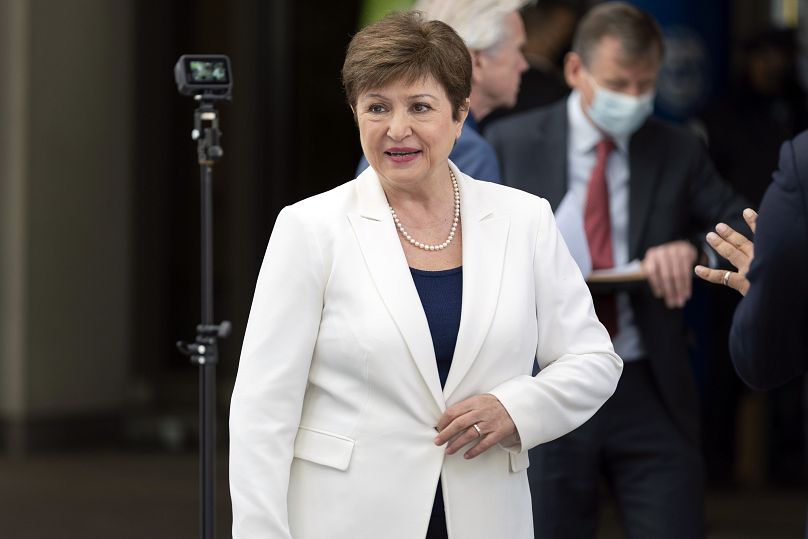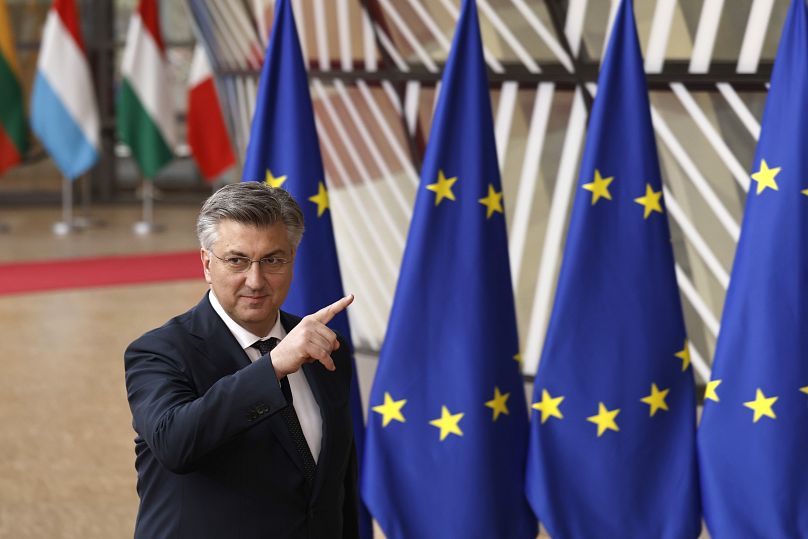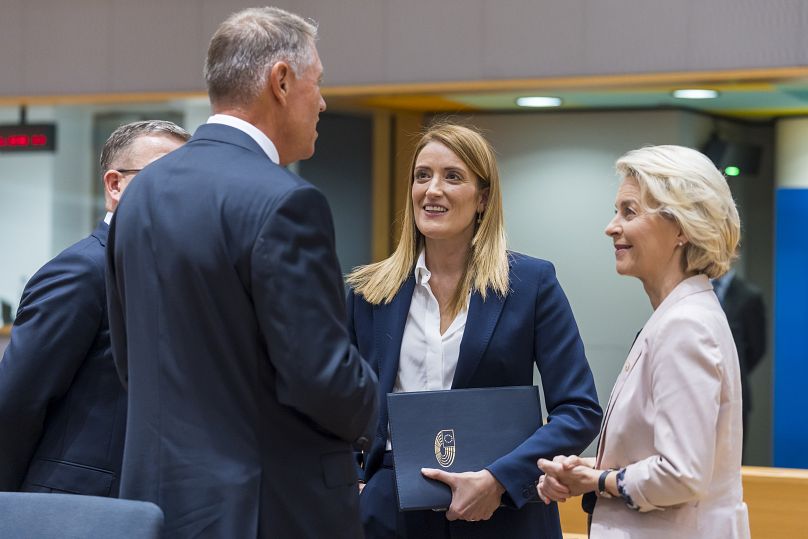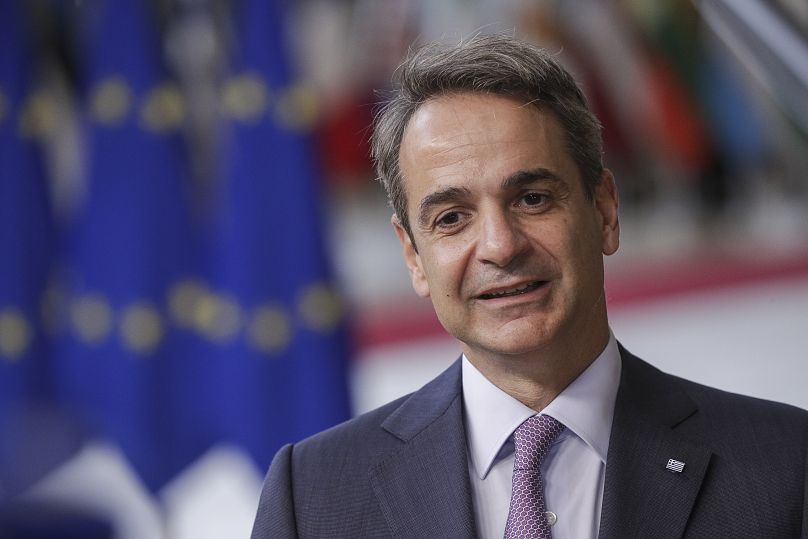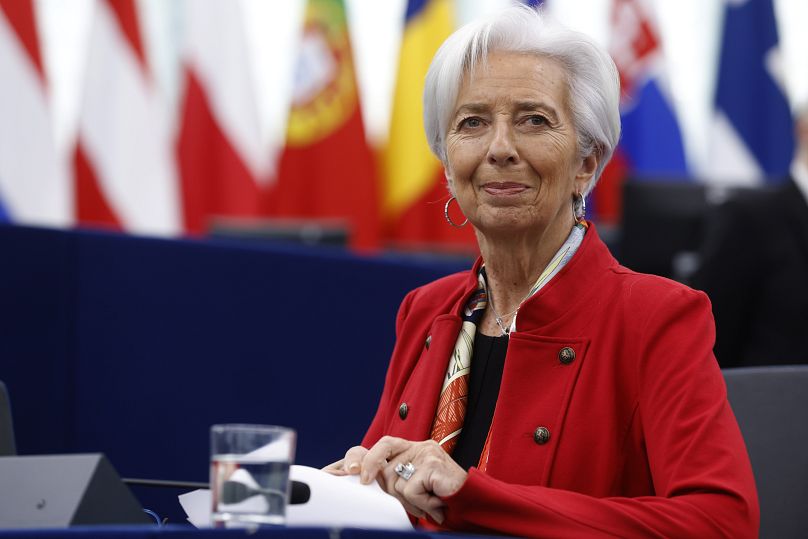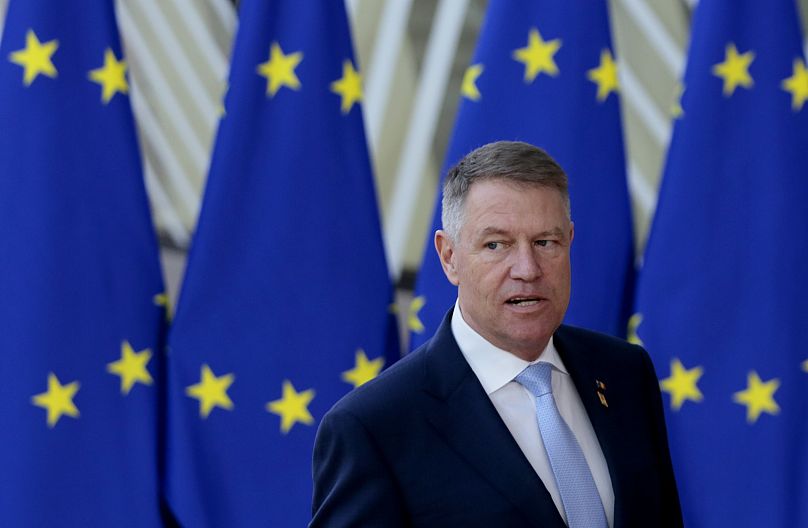The Commission chief post will be put up for grabs after the EU elections. Who might be the other options to Ursula von der Leyen?
A re-appointment of Ursula von der Leyen at the helm of the EU executive seemed a matter of course, but her leadership of the EU executive has lost its lustre in the wake of the withdrawal from office of her pick for SME envoy, Markus Pieper, and following some wobbles over her response to the crisis in the Middle East.
The possibility that she mightn't now get the nod of both EU leaders and incoming MEPs this summer has become a more realistic prospect.
Her main selling point has always been continuity with the current Commission, but also the lack of actual competitors for her post.
Alternative names are now doing the rounds, however – at least in Brussels – although other candidates won’t formally throw their hat in the ring before the elections.
Mario Draghi, the Wizard
Draghi’s speech (16 April) at the high-level social forum in La Hulpe was hailed by the Italian press as a thinly disguised candidacy for the top job. Even in Brussels, the former Italian prime minister enjoys a reputation for making things happen, as if by magic.
The secrets of his witchcraft remain elusive, however – his spell in the face of the euro-area debt crisis was "whatever it takes". He appears to be developing a new incantation in connection with the report on competitiveness he is preparing, commissioned by von der Leyen herself, referring to the need for “a radical change”.
Pros: Probably the most known European politician with an aura of infallibility, also perceived to be above the fray of party politics.
Cons: The risk of having someone who’s “too good” in the top job, overshadowing everyone else – one reason that led Italian parties to pull the plug on his premiership.
Odds: EU leaders and MEPs unlikely to reject Draghi, even Viktor Orban has told reporters in Brussels he “likes” him.
Kristalina Georgieva, the Evergreen
Outgoing European Council President Charles Michel – who will be a key broker in negotiations for the next EU top jobs – said ahead of the special April EU summit that the next Commission will be an ‘economic’ one.
If this is true, who better than the current International Monetary Fund director, Kristalina Georgieva, for the top job?
The name of the former EU budget Commissioner is an evergreen when EU key posts are discussed – and was already circulated in 2019 when von der Leyen was ultimately appointed.
Pros: She could be Eastern Europe's long-awaited first Commission chief since the 'Great Enlargement'.
Cons: She has just been reappointed as IMF Director and compared to other candidates, has fewer connections to the key decision-makers in Brussels.
Odds: Strong with the Council for her support of Eastern countries, solid to shaky in the Parliament.
Andrej Plenković, the Outsider
If its official Spitzenkandidat von der Leyen should fall, the centre-right European People’s Party (EPP) has other strings to its bow – including Plenković.
The Croatian prime minister has led the government since 2016 and might be tempted to pursue a more international career, particularly if his party is defeated in the national elections scheduled for this week.
Pros: Longstanding experience as head of government, emanates from EU's newest member state - a goodwill signal to candidate countries on the waiting list.
Cons: More ‘political’ than ‘policy’ oriented profile.
Odds: Friendship with many fellow EU leaders might make it easy to be appointed but confirmation would rely on coalition-building ability in Parliament.
Roberta Metsola, the Apprentice
When Time magazine included Metsola among 100 emerging leaders shaping the world in 2023, von der Leyen herself penned the accompanying encomium.
“Do not ever give in to cynicism. You can be the engine of change,” the current Commission chief advised the younger politician who might now succeed her mentor.
In her short international career, Metsola has burnished her EPP credentials, becoming the first EU politician to meet Zelenskyy in Kyiv following Russia's full-scale invasion of Ukraine.
She's no frontrunner however: her name would likely emerge if there was no agreement on reappointing von der Leyen and likelier candidates fell away.
Pros: Charisma and youth, plus strong pro-European credentials.
Cons: Lack of international experience, no previous jobs in any government – a problem for EU leaders.
Odds: Easier in the Parliament as outgoing president, more challenging in the European Council.
Kyriakos Mitsotakis, the Ace
Greece’s prime minister could prove another ace in the hole for the EPP if things get tough around the negotiating table. In a recent tweet, EPP party leader Manfred Weber said that Mitsotakis “represents EPP leadership at its best” – words he’d not likely offer von der Leyen.
Mitsotakis is well-liked by fellow EU leaders and could also be a good pick for chairing the European Council if the EPP fails to take the Commission post.
At the recent Euronews ON AIR event, the Greek leader highlighted three main drives for the next EU term: strategic autonomy, competitiveness, and food security – sounding prepared for a State of the Union speech.
Pros: Previous experience as EU leader. He speaks good English and French, and enough German to address the plenary in the annual State of the Union address.
Cons: The whiff of domestic scandal could make him a risky choice.
Odds: Strong with the Council, relying on the political majority in the Parliament as EPP candidate.
Christine Lagarde, the Banker
The current European Central Bank (ECB) governor would be another solid pick if Michel’s prophecy about an ‘economic’ Commission turns out to be right – particularly if negotiations fall into stalemate.
In 2019, she won the helm of the ECB given a push by Emmanuel Macron and might well be the French president's pick once again.
Pros: Good record wherever she’s been, from the French government to the IMF and the ECB.
Cons: A choice that would look bureaucratic or detached from citizens, too close to Macron (for good or ill).
Odds: If her name emerges at the leaders' table, it's a sure sign they’re running out of ideas and she could be one of the last good picks available. Could she win the support of a right-leaning Parliament, however?
Klaus Iohannis, the Strategist
What if Michel is wrong and Europe opts for another ‘geopolitical’ Commission? In this case, the Romanian President's name might emerge like a rabbit from the hat.
Iohannis is also running for NATO Secretary General – although Dutch PM Mark Rutte seems to have the edge in that race – so he has a ready-made vision for Europe’s defence that might be recyclable for the next Commission.
Pros: Candidate from an Eastern country and the EPP.
Cons: Depends on the outcome of the NATO race.
Odds: Relatively well viewed in the European Council, but needs an EPP majority in the Parliament.

